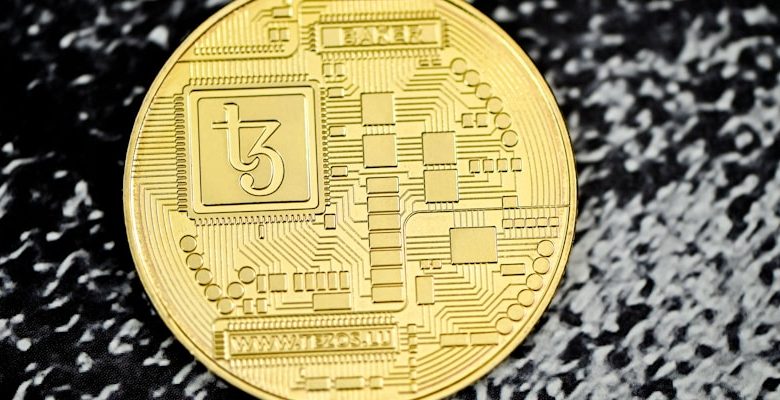The Impact of Blockchain on Intellectual Property Management

- The Rise of Blockchain Technology in Intellectual Property Management
- Enhancing Security and Transparency in IP Rights with Blockchain
- Revolutionizing the Licensing Process Through Blockchain Technology
- Challenges and Opportunities of Implementing Blockchain in IP Management
- The Future of Intellectual Property Rights: A Blockchain Perspective
- Exploring Smart Contracts for Efficient IP Management on the Blockchain Platform
The Rise of Blockchain Technology in Intellectual Property Management
Blockchain technology has been making waves in the realm of intellectual property management in recent years. This innovative technology offers a secure and transparent way to record and track ownership rights, licenses, and royalties for various forms of intellectual property such as patents, trademarks, and copyrights.
One of the key benefits of blockchain technology in intellectual property management is its ability to create an immutable and decentralized ledger that can store information about the creation, ownership, and transfer of intellectual property rights. This helps to reduce disputes over ownership and infringement, as all transactions are recorded on the blockchain and cannot be altered or tampered with.
Furthermore, blockchain technology enables the creation of smart contracts, which are self-executing contracts with the terms of the agreement directly written into the code. Smart contracts can automate the process of licensing intellectual property rights, ensuring that creators receive fair compensation for their work and that licensees adhere to the terms of the agreement.
Overall, the rise of blockchain technology in intellectual property management is revolutionizing the way that intellectual property rights are protected and managed. By leveraging the security and transparency of the blockchain, creators and rights holders can have greater confidence in the integrity of their intellectual property assets, ultimately leading to a more efficient and equitable system for managing intellectual property rights.
Enhancing Security and Transparency in IP Rights with Blockchain
One of the key benefits of utilizing blockchain technology in the management of intellectual property (IP) is the enhanced security and transparency it provides. By leveraging the decentralized and immutable nature of blockchain, organizations can establish a more secure and reliable system for tracking and protecting their IP rights.
Through the use of blockchain, all IP-related transactions and data can be securely recorded on a distributed ledger, ensuring that information is tamper-proof and resistant to unauthorized alterations. This increased security helps prevent issues such as counterfeiting, piracy, and unauthorized use of intellectual property, safeguarding the value of IP assets.
Furthermore, blockchain technology enables greater transparency in the management of IP rights by providing a clear and verifiable record of ownership, licensing agreements, and other relevant information. This transparency not only helps to streamline the IP management process but also enhances trust among stakeholders, making it easier to enforce IP rights and resolve disputes.
Overall, the integration of blockchain into intellectual property management offers a promising solution for addressing the challenges associated with IP protection and enforcement. By enhancing security and transparency, blockchain technology can help organizations better safeguard their valuable intellectual property assets and ensure that they are used and protected in accordance with legal requirements and agreements.
Revolutionizing the Licensing Process Through Blockchain Technology
Blockchain technology has the potential to revolutionize the licensing process in the realm of intellectual property management. By leveraging the decentralized and transparent nature of blockchain, organizations can streamline the process of obtaining and managing licenses for their intellectual property assets. This technology offers a secure and efficient way to track the ownership and usage rights of intellectual property, reducing the risk of infringement and unauthorized use.
One of the key benefits of using blockchain for licensing is the ability to create smart contracts. These self-executing contracts automatically enforce the terms and conditions of a license agreement, ensuring that all parties adhere to the agreed-upon terms. This eliminates the need for intermediaries and reduces the potential for disputes or misinterpretations. Smart contracts also provide a level of automation that can significantly speed up the licensing process, allowing organizations to quickly and easily grant or revoke licenses as needed.
Additionally, blockchain technology can enhance the transparency and traceability of licensing agreements. All transactions related to the licensing process are recorded on the blockchain, creating an immutable and auditable record of all activities. This transparency not only helps to prevent fraud and ensure compliance but also provides greater visibility into the usage and monetization of intellectual property assets. Organizations can use this data to make more informed decisions about their licensing strategies and identify potential opportunities for revenue generation.
Overall, the adoption of blockchain technology in the licensing process has the potential to transform the way intellectual property is managed and monetized. By leveraging the unique features of blockchain, organizations can streamline their licensing processes, reduce the risk of infringement, and gain greater visibility and control over their intellectual property assets. As the technology continues to evolve, we can expect to see even more innovative applications of blockchain in the field of intellectual property management.
Challenges and Opportunities of Implementing Blockchain in IP Management
Implementing blockchain in intellectual property (IP) management presents various challenges and opportunities that organizations need to consider. One of the main challenges is the complexity of integrating blockchain technology into existing systems and processes. This may require significant resources and expertise to ensure a seamless transition.
On the other hand, implementing blockchain in IP management can provide numerous opportunities for enhancing security, transparency, and efficiency. Blockchain’s immutable ledger can help prevent unauthorized changes to IP records, reducing the risk of intellectual property theft and infringement. Additionally, smart contracts can automate licensing agreements and royalty payments, streamlining IP management processes.
Another challenge is the potential lack of standardization in blockchain protocols and platforms. Organizations may need to navigate a fragmented landscape of technologies and standards when implementing blockchain for IP management. This could result in interoperability issues and hinder the scalability of blockchain solutions.
Despite these challenges, the opportunities presented by blockchain in IP management are significant. Improved traceability and provenance of intellectual property assets can help organizations protect their IP rights and establish ownership more effectively. Furthermore, blockchain can facilitate decentralized IP marketplaces, enabling creators to directly monetize their creations without intermediaries.
In conclusion, while there are challenges to overcome, the opportunities for implementing blockchain in IP management are vast. By addressing the complexities of integration and standardization, organizations can harness the benefits of blockchain technology to revolutionize the way intellectual property is managed and protected.
The Future of Intellectual Property Rights: A Blockchain Perspective
The future of protecting intellectual property rights is evolving with the use of blockchain technology. Blockchain offers a decentralized and secure way to manage intellectual property assets, ensuring authenticity and preventing unauthorized use or infringement.
One key advantage of blockchain in intellectual property management is the ability to create a transparent and immutable record of ownership. By storing information about copyrights, patents, and trademarks on a blockchain, creators can prove ownership and establish a clear chain of title.
Furthermore, blockchain smart contracts can automate licensing agreements and royalty payments, reducing the need for intermediaries and streamlining the process for creators and rights holders. This can help minimize disputes and ensure fair compensation for intellectual property usage.
Overall, blockchain has the potential to revolutionize how intellectual property rights are protected and managed. By leveraging this technology, creators can have greater control over their work, while businesses can securely license and utilize intellectual property assets in a more efficient and transparent manner.
Exploring Smart Contracts for Efficient IP Management on the Blockchain Platform
Exploring smart contracts for efficient intellectual property (IP) management on the blockchain platform can revolutionize the way assets are protected and managed. Smart contracts are self-executing contracts with the terms of the agreement directly written into code. By leveraging blockchain technology, smart contracts can automate and streamline the process of IP management, eliminating the need for intermediaries and reducing the risk of disputes.
Smart contracts can be used to establish ownership rights, monitor the use of assets, and enforce licensing agreements. These contracts are transparent, immutable, and tamper-proof, providing a secure and reliable way to manage IP rights. By recording all transactions on the blockchain, smart contracts ensure a complete and auditable history of ownership and usage, which can help resolve disputes and protect the interests of creators and innovators.
Implementing smart contracts for IP management can also improve efficiency and reduce costs associated with traditional methods. By automating tasks such as royalty payments, license renewals, and copyright registrations, smart contracts can streamline operations and eliminate human error. This can result in faster processing times, lower administrative costs, and greater overall efficiency in managing intellectual property assets.



